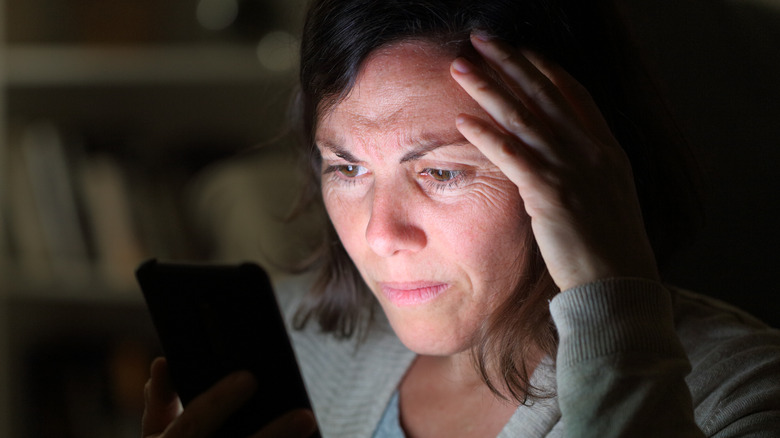How The Attacks On Ukraine May Impact Your Mental Health And What You Can Do
For the past few weeks, Russia's attacks on the people of Ukraine have bombarded our news feeds, water cooler conversations, and newspaper headlines. Videos of people walking amongst bombed remnants of what used to be their homes, tanks rolling into once-quiet towns, and images of children huddled in bomb shelters have much of the world in an uproar.
Being privy to the darkness, injustice, and destruction happening in Ukraine, it's understandable that this could be affecting your mental health. Perhaps you feel anger towards the Russian government, sadness on behalf of the Ukrainian people, or anxiety about what the future holds.
Witnessing the struggle of others can cause symptoms of trauma within your mind and body. This phenomenon is called vicarious trauma and occurs when you witness somebody experiencing a traumatic situation (via Medical News Today). These events are also directly occurring right as the COVID-19 pandemic is dying down, so you may already be feeling emotionally drained from the onslaught of stress the past two years have brought (per CNN).
How to boost your mental health during these tough times
Luckily, there are things you can do to help ease the stress that you may be experiencing. While it's normal to want to be informed of what's happening, you don't have to be inundated. New York-based therapist Chloe Carmichael explained to CNN, "Understanding the global events can be a productive way to cope with uncertainty, but if you're glued to every update and unable to focus on other things, you may need to set limits on how often and how long you consume information on the conflict."
With so much darkness occurring, you can also boost your mental health by finding ways to add your light to the world. There are many charitable organizations donating money and supplies to the people of Ukraine that you can get involved with, per CNN.
Starting a meditation practice is also a wonderful way to boost your mental health (via Healthline). It can help reduce stress, control anxiety, enhance self-awareness, and cultivate kindness within — all critically important factors for mental health during these tough times.


